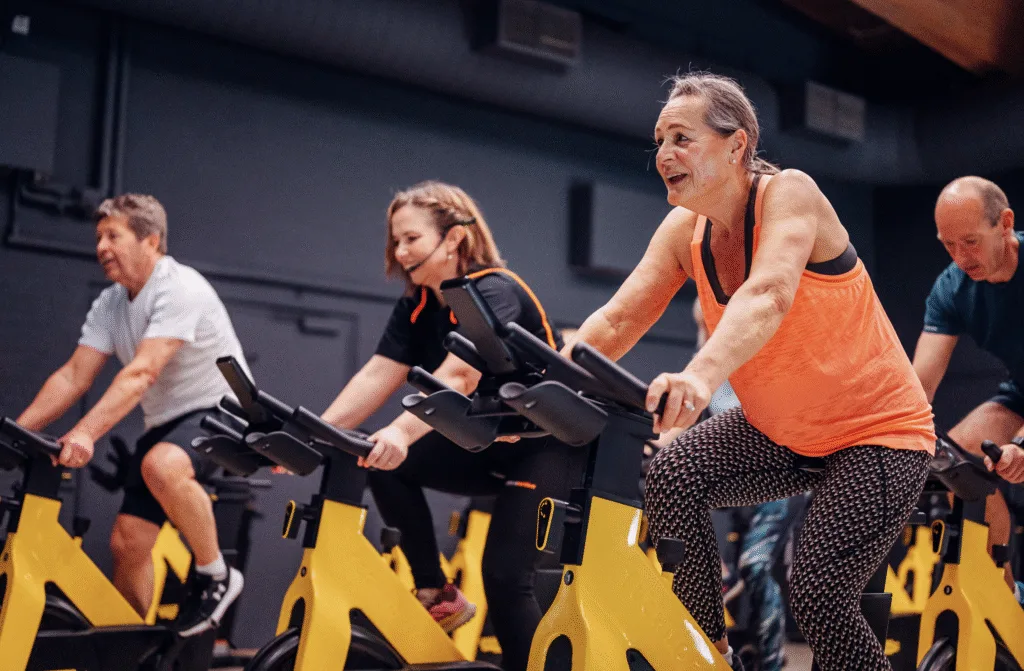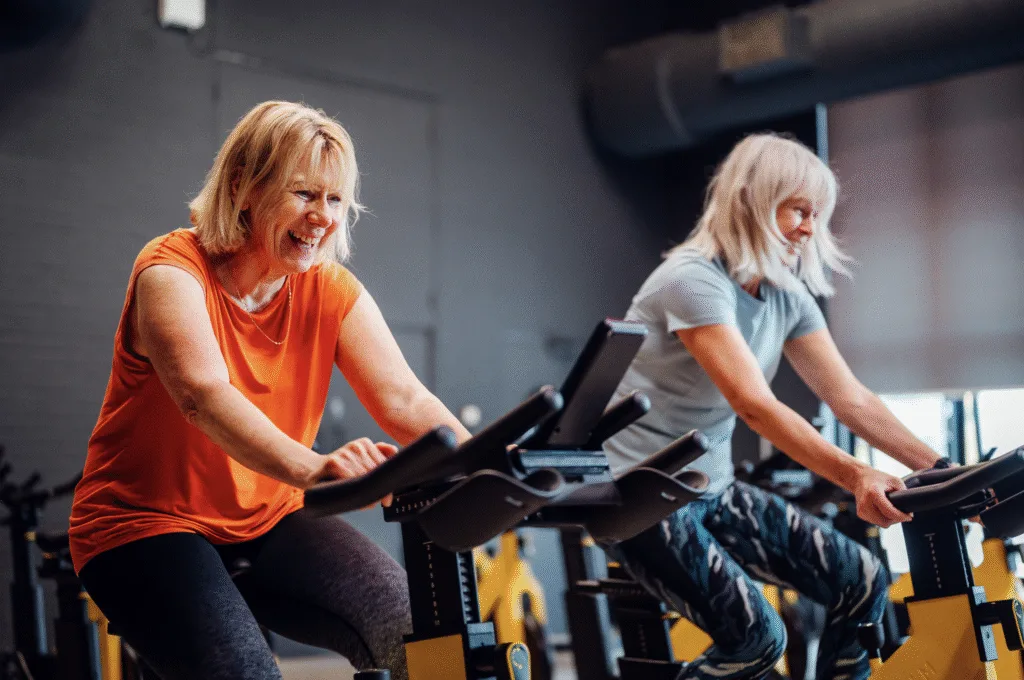A groundbreaking study led by Bournemouth University (BU) and University Hospitals Dorset (UHD) has revealed that weekly group cycling classes significantly improve outcomes for patients with hip osteoarthritis – and may offer a more cost-effective alternative to standard physiotherapy.
Funded by the National Institute for Health Research (NIHR), the research will be published in Lancet Rheumatology at 23:30 UK time on Thursday 31st July 2025.
Participants who attended weekly group sessions combining static cycling and education reported better recovery outcomes than those receiving conventional one-to-one physiotherapy. The study also found the group-based approach required less clinical time, offering an efficient and scalable model for NHS services.
Tom Wainwright, Professor of Orthopaedics at BU and a physiotherapist at UHD, who led the study, said:
“For the time it takes to treat one patient using standard physiotherapy, we can treat multiple patients in a group session and provide them with better outcomes. This has proved to be more cost-effective than standard treatment and so we hope this will contribute to reducing NHS waiting times for physiotherapy treatment in the future.”
The intervention, known as “CHAIN” (Cycling against Hip Arthrosis), involves an eight-week programme of static cycling and education. First launched in 2013, the approach supports people living with hip osteoarthritis (OA) – a condition affecting 3.2 million people in the UK and a major cause of disability in older adults.
A five-year follow-up showed sustained benefits. Participants continued to manage their pain using self-help strategies and, significantly, 57% had not gone on to have surgery.

Professor Rob Middleton, also from BU and an orthopaedic surgeon at UHD, said:
“Hip replacements cost the NHS over £6,000 per patient, so avoiding surgery for hip problems reduces the burden on the NHS, saves money, and provides better outcomes for patients. Now with this new study we can also see the potential for static cycling to save further money for the NHS by bringing down waiting lists for physiotherapy.”
Dr Peter Wilson, Chief Medical Officer at UHD, added:
“We are an ageing population and increasingly we are seeing more patients with osteoarthritis that need either surgery or physiotherapy. Finding alternative ways to treat these patients could help reduce waiting times and the financial demand on NHS services.”
Professor Wainwright continued:
“We previously knew that CHAIN worked and benefitted patients. What this latest study has shown is that it improves clinical outcomes and is far more cost-effective when compared to usual physiotherapy care.”
Patients are referred to the CHAIN programme by their GP and join the eight-week course via the UHD Physio Team. Sessions are currently delivered in partnership with BH Live, a local charity and major leisure centre operator, at BH Live Active, Littledown in Bournemouth.
Viv Galpin, Health & Wellbeing Manager at BH Live, said:
“Studio cycling is a fantastic form of low-impact exercise. Among many other advantages, it helps to improve muscles around joints, maintain bone strength, improve balance, and reduce joint pain and stiffness. It’s great to see so many participants are already benefitting from our programme.”

One participant, Sue, was referred after being forced to give up her two favourite hobbies – walking and dancing – due to hip pain.
“My leg would give way and suddenly I couldn’t walk. The first week of the spinning class I could barely manage to get on the bike. By the third week I had already noticed a positive difference in my hip. After the programme I was walking and dancing and grateful to have a good night’s sleep again,” she said.
To expand CHAIN’s reach, the BU team has developed a virtual version via their education app. This allows patients to complete the programme from home or at a local gym using a static bike.
The long-term goal is national roll-out. BU aims to equip clinical teams across the UK with the knowledge and resources to establish their own CHAIN programmes.
Professor Wainwright concluded:
“By providing an app to help people manage their hip pain virtually and by supporting other clinicians with a toolkit to set up their own CHAIN programmes, the outcomes in the future could change the way we treat hip pain on a national and international level, helping to benefit our patients and improve lives for thousands of people.”
For further information about the CHAIN programme, please visit the BU website.


